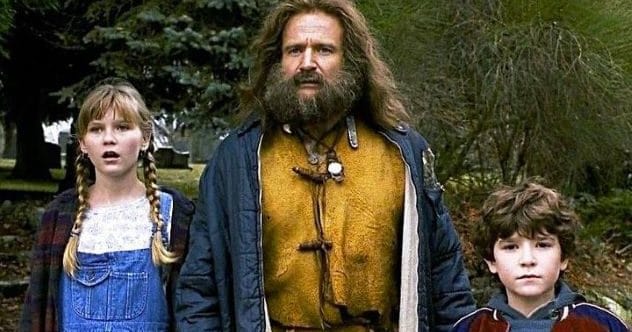Ever settle in for a movie night, expecting the film to be based on some hefty novel? While that’s often true, you might be amazed to learn how many blockbuster hits actually sprang from the compact world of short stories. These concise tales, packed with potent ideas, have inspired some of cinema’s most memorable moments. Get ready to explore ten incredible movies that prove great things truly can come in small (literary) packages!
10. The Living Daylights (Ian Fleming)
Ian Fleming’s James Bond is a global icon, and while many adventures fill entire novels, some started smaller. The Living Daylights, the 1987 film starring Timothy Dalton as 007, is based on a short story of the same name. This story was part of the collection Octopussy and The Living Daylights, published after Fleming’s death.
Believe it or not, the original tale is only about 36 pages long! It’s a quick read, yet it provided enough thrilling material for a full-length action movie that raked in an impressive $191.2 million worldwide. It just goes to show that even a brief encounter with Bond can pack a mighty punch on the big screen.
9. Jumanji (Chris Van Allsburg)
The wild adventure of Jumanji, which thrilled audiences in 1995, originated from a children’s picture book by Chris Van Allsburg. Yes, the same talented author and illustrator who gave us The Polar Express! The book itself is a visual and narrative treat, but the movie expanded on its world significantly.
The film adaptation introduced adult characters, including the unforgettable Alan Parrish played by Robin Williams, and ramped up the jungle chaos. Its success led to an animated TV series and later, Van Allsburg penned a sequel, “Zathura,” which also became a movie. The Jumanji universe continues to grow with recent hits like Jumanji: Welcome to the Jungle and Jumanji: The Next Level, all stemming from that initial, imaginative short story.
8. The Illusionist (Steven Millhauser)
The mesmerizing 2006 film The Illusionist, starring Edward Norton and Jessica Biel, wove a tale of magic, love, and political intrigue in turn-of-the-century Vienna. Its source material is Steven Millhauser’s short story, “Eisenheim the Illusionist,” found in his collection The Barnum Museum: Stories.
While director Neil Burger took liberties adapting the story, the core essence of the enigmatic illusionist Eisenheim and his captivating performances remained. The film beautifully captured a world where magic feels real and passion defies societal boundaries, ultimately earning around $87 million globally. It’s a testament to how a focused short narrative can inspire a visually rich and emotionally engaging film.
7. The Birds (Daphne du Maurier)
Alfred Hitchcock, the master of suspense, turned to Daphne du Maurier’s chilling short story, “The Birds,” for his iconic 1963 horror film. Du Maurier’s tale, first published in a collection, paints a terrifying picture of nature turning against humanity, with birds launching coordinated attacks across Britain and Europe.
Hitchcock loosely adapted the premise, shifting the setting from the story’s original London to coastal California, and introducing new characters. Despite the changes, the terrifying core idea of an inexplicable avian assault remained, creating one of cinema’s most unsettling and memorable thrillers. Interestingly, this wasn’t their first collaboration; Hitchcock also adapted du Maurier’s novel Rebecca.
6. The Killers (Ernest Hemingway)
Ernest Hemingway’s terse and powerful 1927 short story, “The Killers,” served as the basis for the classic 1946 American film noir of the same name. The movie, which marked Burt Lancaster’s debut and starred Ava Gardner, expanded significantly on Hemingway’s original narrative about two hitmen arriving in a small town.
The film delves into an investigation of why a former boxer, “The Swede,” resignedly awaits his own murder. Remarkably, Hemingway, who often disliked Hollywood’s treatment of his work, was reportedly pleased with this adaptation. The story’s impact also led to a student film by Andrei Tarkovsky and a 1964 remake, which was Ronald Reagan’s final film role.
5. Million Dollar Baby (F.X. Toole)
Clint Eastwood’s critically acclaimed 2004 drama, Million Dollar Baby, swept the Oscars, earning awards for Best Picture, Best Director, Best Actress (Hillary Swank), and Best Supporting Actor (Morgan Freeman). This powerful story of a determined female boxer originated from a short story titled “Million $$$ Baby” by F.X. Toole (the pen name for Jerry Boyd).
Boyd, who had a deep passion for boxing, infused his stories with authenticity drawn from his experiences. The path to the screen was long and faced social controversies, but the resulting film was a triumph. Tragically, Boyd passed away before he could witness his gritty, heartfelt short story become an Academy Award-winning masterpiece.
4. 2001: A Space Odyssey (Arthur C. Clarke)
Stanley Kubrick’s groundbreaking 1968 science fiction epic, 2001: A Space Odyssey, is a cinematic marvel that explores themes of evolution, artificial intelligence, and humanity’s place in the cosmos. This visionary film was developed concurrently with a novel by Arthur C. Clarke, but its initial seeds were sown in some of Clarke’s earlier short stories, notably “The Sentinel” and “Encounter in the Dawn.”
Kubrick and Clarke collaborated closely, aiming for realism and respecting scientific principles. The film, released a year before the actual moon landing, was remarkably prescient, featuring technologies like flat screens, tablets, and voice-activated AI that are commonplace today. It remains one of the most influential sci-fi films ever made, a grand vision sparked by shorter narratives.
3. The Secret Life of Walter Mitty (James Thurber)
James Thurber’s delightful 1939 short story, “The Secret Life of Walter Mitty,” is a mere 10 pages long but captures the universal experience of escaping mundane reality through heroic daydreams. The story was first adapted into a film in 1947, an effort Thurber himself reportedly disliked despite consulting on it.
The 2013 remake, directed by and starring Ben Stiller, brought Mitty’s story to a new generation. This version sees Mitty, a negative assets manager at Life magazine, embark on a real-life adventure after a crucial photo negative goes missing. While differing greatly from the source material, the film offers a heartwarming message about living life to the fullest, transforming Mitty’s daydreams into tangible, breathtaking experiences.
2. The Curious Case of Benjamin Button (F. Scott Fitzgerald)
While F. Scott Fitzgerald is famed for novels like The Great Gatsby, his 1922 short story, “The Curious Case of Benjamin Button,” provided the unique premise for the acclaimed 2008 film. The story, under 10,000 words, tells the extraordinary tale of a man born old who ages in reverse, growing younger until he dies as an infant.
Adapting such a fantastical concept for the screen was a monumental challenge, with the project cycling through directors for years. David Fincher eventually helmed the film, starring Brad Pitt and Cate Blanchett. Despite setbacks, including Hurricane Katrina hitting the New Orleans set, the film became a visually stunning and emotionally resonant exploration of life, love, and time, all born from Fitzgerald’s imaginative short piece.
1. The Shawshank Redemption (Stephen King)
Often topping lists of all-time-favorite movies, The Shawshank Redemption is a powerful story of hope and friendship in the grim confines of a prison. This 1994 masterpiece, starring Tim Robbins and Morgan Freeman, was adapted from Stephen King’s 1982 novella, “Rita Hayworth and Shawshank Redemption,” found in his collection Different Seasons.
Interestingly, despite its current beloved status and seven Oscar nominations, the film was a box office disappointment upon its initial release. However, it found a massive audience through video rentals, becoming the most rented film of 1995. Frank Darabont’s faithful and moving adaptation of King’s novella proves that even stories not initially destined for blockbuster status can become enduring cinematic treasures.
It’s truly fascinating how these relatively brief literary works blossomed into such expansive and beloved films. The journey from a few dozen pages, or even a short novella, to a multi-million dollar cinematic event showcases incredible creativity and vision. So, the next time you’re watching a blockbuster, take a moment to wonder – could this epic tale have started as a simple short story?
Which of these movie adaptations surprised you the most? Have you read any of the original short stories? Share your thoughts and any other short-story-to-film favorites in the comments below!










